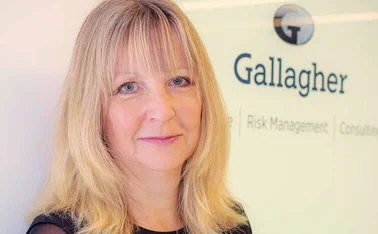
Analysis: Managing ‘unthinkable risks’

The insurance industry has become progressively familiar with the idea of ‘unthinkable risks’ in recent years as unpredicted and unprecedented losses, caused by both natural catastrophes and man-made events, have continued to happen
The ‘unthinkable risk’ is something that is all too easy to identify with the benefit of hindsight. Nevertheless, as these risks become increasingly commonplace the insurance industry must learn to manage them effectively.
The 21st century has seen a number of losses that would have been deemed ‘unthinkable’ before they occurred. Infamously 2001’s 11 September terror attack was as horrific as it was shocking. It precipitated the invasions of Afghanistan and Iraq and its geo-political fallout continues to this day.
Natural catastrophes such as Hurricane Katrina, which caused the costliest insured loss in history, and Superstorm Sandy have caused flooding of major cities on a previously unforeseen scale.
“No matter how good an underwriter is, there will always be risks that are impossible to quantify accurately,” says Matthew Connell, director of policy and public affairs at the Chartered Insurance Institute.
“That is why standard policies often exclude events such as war, and why specialist policies are very clear about exactly which elements of these ‘unthinkable’ risks are covered.
Connell adds: “However, there is a danger that if exclusions are used too widely, they can damage trust in insurance. If a risk is so big that, if it materialises, claiming on their insurance will be the least of people’s worries, then it is probably reasonable to exclude it.”
Meanwhile, the possible extent of accumulations in the supply chain were highlighted by the Tianjin explosion, which caught out reinsurers which did not realise that so many insured vehicles could be in one location at one time.
Cyber is another area where the industry needs to manage accumulations as the risks created by ever-larger volumes of data, which are vulnerable to massive breaches, continue to increase.
“We have to force ourselves to think about cyber risks that might seem on the benign side in terms of severity and frequency and actually think about what it would take for some businesses to be part of a major, interrelated event, a disaster-type event,” says Cecile Fresneau, executive director at UK insurance at QBE.
“As an industry we have taken an approach focused on helping customers with crisis management. We’ve probably been quite restrictive in some of the cover we offer as an industry because of the inability to understand and manage those accumulations properly.
“It is something we never cease to keep challenging ourselves on as an industry. Obviously managing accumulations for cyber is the main challenge. When we work with customers it is more around cyber security and crisis management.”
Naturally occuring
However, accumulations are something that will continue to occur naturally and will confront the insurance industry across multiple lines of business. According to Lars Lange, secretary general of the International Union of Marine Insurance, it is incumbent on the industry to recognise these risks in advance so it can mitigate them using thorough and effective risk assessments.
Lange adds: “The service we provide to our clients is not simply about insuring what is out there, it is also about giving an additional service to the client. Helping them assess and mitigate the risks.”
The risks associated with natural catastrophe scenarios are expected to continue shifting with the impact of climate change. So, the insurance industry is now busy trying to work out what the new norm is in terms of weather events.
Although there is far more awareness now and modelling of these events has improved markedly, predicting future events remains as difficult as ever. There is no expectation that weather events will return to a past norm, so modellers cannot rely on the events of the last five years as a guide. Those events are unlikely to be repeated in terms of either severity or frequency.
Some vulnerable cities, such as Miami, are taking steps to adapt to climate change. The Florida city has placed pumps all around the city as a stopgap, but is also rebuilding natural barriers to take the
force out of storm surge and raised roads in low-lying areas.
“It is conscious, like a lot of cities, that it needs to be fit for purpose. If enough people and businesses lose their willingness to spend money, they will move. It is already happening with middle classes leaving the East Coast and moving to higher ground,” says Nigel Brook, partner at Clyde & Co.
“Over the last five years we’ve seen a lot more dialogue between insurers and governments, usually at the city level. Insurers have two value adds. One is risk transfer through policies, but they also bring their expertise in risk modelling and risk mapping.
He adds: “Insurers have learned a lot and have become more sophisticated about risk modelling and risk mapping. They can bring that thinking to city planners who aren’t trained that way.”
Partnering imperative
In order to respond to risks of this magnitude it is imperative that the industry partners with governments and non-governmental agencies.
“This is all about teamwork, we can’t do this alone. Associations like IUMI exist to provide the network and communication centre between the stakeholders who need to work on this. We have to make this as concrete as possible,” says Lange.
“When we talk about natural catastrophes we have to talk about the root causes, about climate change because it is one of the factors. We have to work on this but we are only one small part.
“We have to facilitate business in an environmentally friendly manner, hoping to reduce the impact of climate change and helping to manage the risks arising from that.”
Although predicting the future is notoriously difficult many risks remain visible and predictable and both brokers and insurers are alert to, and addressing, these risks.
“There are promising signs that the industry, more typically oil tanker than ocean going yacht in terms of agility, is changing tack and developing innovative solutions and services, including for the less tangible risks and ‘unthinkable’ risks,” says Julia Graham, deputy CEO and technical director at Association of Insurance and Risk Managers.
“I have optimism that the industry will produce exciting and new ideas – risk professionals need to up to partnering them in developing and using these – but success is a collaborative necessity.”
Only users who have a paid subscription or are part of a corporate subscription are able to print or copy content.
To access these options, along with all other subscription benefits, please contact info@postonline.co.uk or view our subscription options here: https://subscriptions.postonline.co.uk/subscribe
You are currently unable to print this content. Please contact info@postonline.co.uk to find out more.
You are currently unable to copy this content. Please contact info@postonline.co.uk to find out more.
Copyright Infopro Digital Limited. All rights reserved.
As outlined in our terms and conditions, https://www.infopro-digital.com/terms-and-conditions/subscriptions/ (point 2.4), printing is limited to a single copy.
If you would like to purchase additional rights please email info@postonline.co.uk
Copyright Infopro Digital Limited. All rights reserved.
You may share this content using our article tools. As outlined in our terms and conditions, https://www.infopro-digital.com/terms-and-conditions/subscriptions/ (clause 2.4), an Authorised User may only make one copy of the materials for their own personal use. You must also comply with the restrictions in clause 2.5.
If you would like to purchase additional rights please email info@postonline.co.uk








